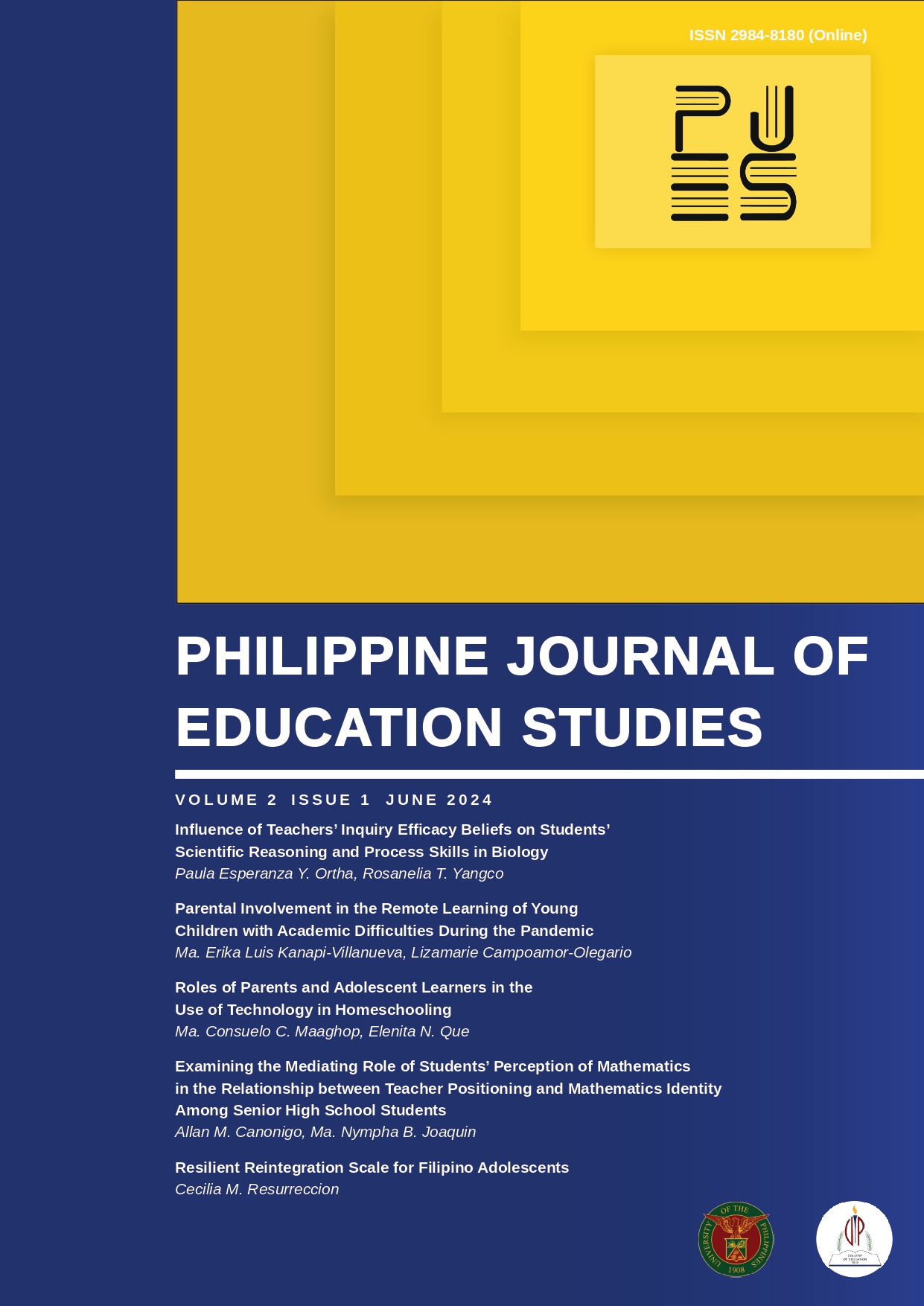Influence of Teachers’ Inquiry Efficacy Beliefs on Students’ Scientific Reasoning and Process Skills in Biology
Abstract
Teachers’ self-efficacy may affect how they teach (Bandura, 1994). Consequently, developing self-efficacy in Scientific Inquiry (SI) is essential as teachers (Dira-Smolleck, 2004). This study then investigates the influence of Science Teachers’ Inquiry Efficacy Beliefs (TIEB) on students’ scientific reasoning (SR) and process skills (PS) in Biology. It also explored the relationship between SR and PS.
A survey was conducted among 56 Grade 9 science teachers and 1968 students from Quezon City and Manila. Regression analyses suggest that TIEB on Explanation from Evidence may enhance students’ skill in identification and control of variables in SR, F(1,1966)=7.902, p=.005, R2 adjusted=.004. Linear relationships for the rest of the components were not established. One-tailed Pearson correlation showed a weak, positive link between students’ SR and PS in Biology, r(1966)=.21, p=.000, with positive correlations between some SR and PS components.
Students are generally found to exhibit poor abilities in SR (M=22.02%) and PS (M=31.76%) in Biology. Teachers’ TIEB score of 3.34 implies a high degree of self-efficacy in implementing SI, possibly a coping mechanism to prevent burnout. Barriers like time constraints were also discussed.
The results imply that the teachers’ current SI implementation is not sufficient to influence students’ scientific reasoning and process skills in Biology.


